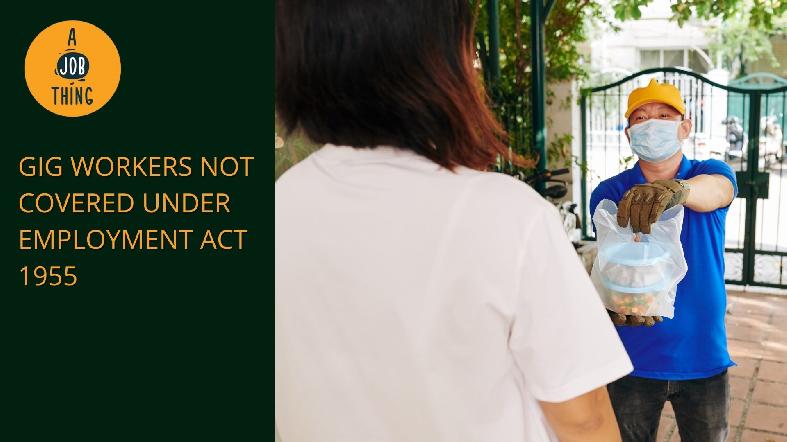
Do Malaysian Labour Laws Recognise Gig Workers as ‘Employees'?
Are You Hiring?
Find candidates in 72 Hours with 5+ million talents in Maukerja Malaysia & Ricebowl using Instant Job Ads.
HIRE NOW
Today, the Dewan Rakyat was told that gig economy workers in Malaysia are not included under the definition of employees under these acts:
-
Employment Act 1955 (Act 265),
-
Labour Ordinance (Sarawak Chapter 76), and
-
Labour Ordinance (Sabah Chapter 67)
According to Deputy Human Resource Minister Awang Hashim, there was no filing or record of labour cases involving the group of gig workers that could be used as a benchmark that would enable them to enjoy the same benefits as employees, as explicitly defined under Malaysia's labour law.
During the question-and-answer session, Awang said that under the gig employment system and contract for service as agreed, gig economy workers are not covered under the Minimum Wages Order (PGM) 2020 and the National Wages Consultative Council Act 2011 (Act 732).
However, according to the Self-Employment Social Security Act 2017 (Act 789), the deputy minister said that the Malaysian government offered social security protection to self-employed persons, covering gig economy workers such as those doing e-hailing and food delivery services if they contribute under the act.
Is there a plan to introduce minimum wage for gig workers?
Awang said this when replying to questions from Dzulkefly Ahmad and Salahuddin Ayub. The two asked for clarification on whether the government has plans to propose a minimum wage under the gig economy business industry, similar to the practice in the United Kingdom.
Quoting the Uber versus Aslam case in the United Kingdom, the deputy minister said that gig economy workers in the country received minimum wage protection after the workers protested the constantly changing delivery wage rates.
He also said that PGM 2020 and Act 732 apply to every employee in the private sector, excluding domestic services outlined under the employment and labour laws.
.jpg)
Under the Employment Act 1955, gig economy workers are not included under the definition of workers.
Defining gig workers under the employment law
According to Awang, Act 265, Labour Ordinance (Sarawak Chapter 76) and Labour Ordinance (Sabah Chapter 67) describe employees as persons bound under a service contract with their employers.
Gig economy workers are persons who are self-employed, free and are focused only on their job scope and the duration that has been determined with the payment already accepted upon.
The gig work system and characteristics allow both companies and workers to operate under a more open and flexible contract without being tied to an office environment and full-time employees.
Programs and policies for job seekers and employers
In his reply to Ahmad Hassan's question about policies and new programs to create a new source of income while keeping the existing employees in Sabah, the deputy minister said the government would propose several new initiatives to create new job opportunities for all levels of job seekers.
He said that in a recovering economic environment, the government, through the Social Security Organisation, has introduced training programmes, hiring incentives and mobility assistance under Penjana to spur recruitment by employers.
Source: The Star/BERNAMA

